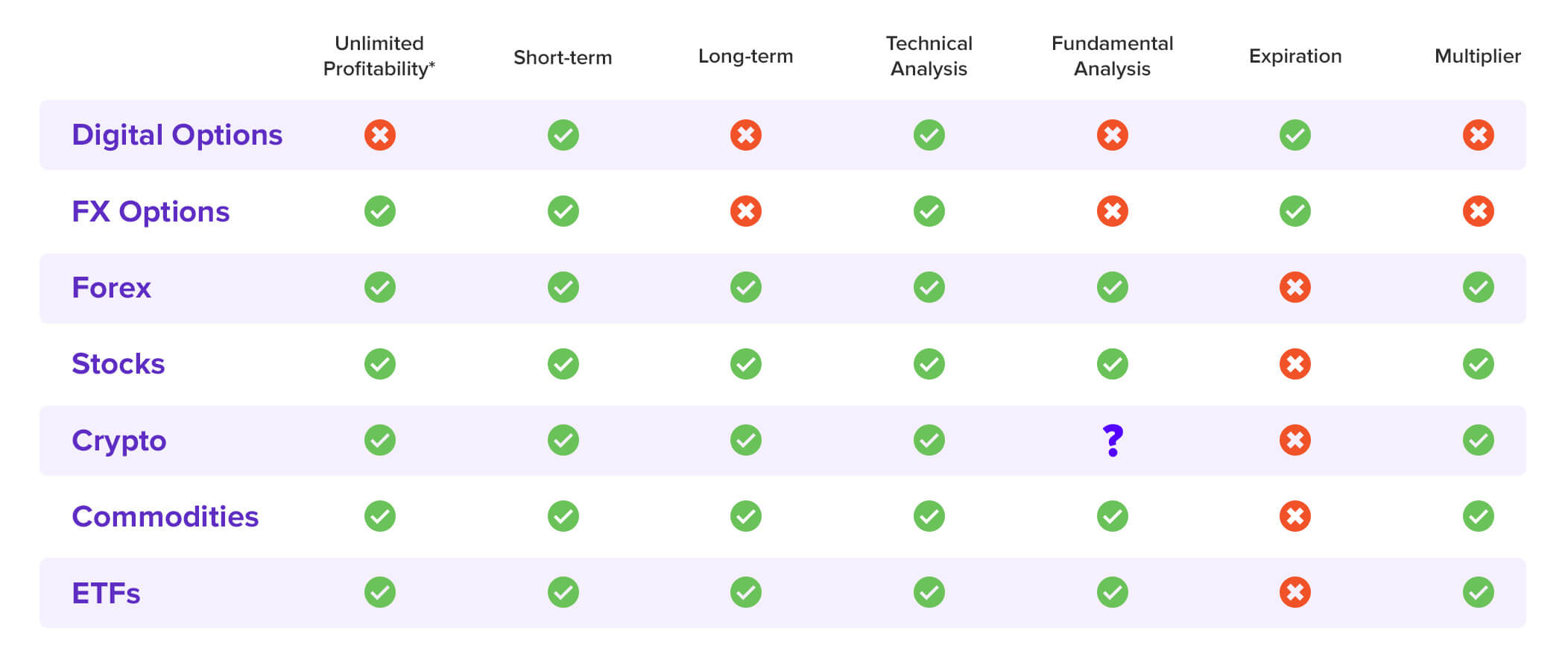Choosing a Trading Instrument That Suits You
The IQ Option platform offers an extended list of trading instruments to choose from: options, Forex, stocks, commodities, cryptocurrencies and ETFs. For a newcomer, they all may seem identical but in fact behave quite differently. What works for some assets won’t work for the other, and vice versa. Choosing the right asset to trade is a logical step for a rookie investor. And even if you know about the differences, you may want to dig deeper to find the one instrument that suits you best.
In order to understand what instrument to trade, you will first have to learn more about their major features and distinctive traits. Then, you may want to compare each instrument to your demands and pick one (probably, more than one) that suits your personal preferences and trading style.
 Digital and FX Options will suit those looking for short-term deals. As you can see from the table, both cannot be traded with a multiplier. Digital Options are the only instrument currently available on the platform that has a predetermined profitability threshold. All other instruments can boast unlimited profit potential (at least, in theory).
Digital and FX Options will suit those looking for short-term deals. As you can see from the table, both cannot be traded with a multiplier. Digital Options are the only instrument currently available on the platform that has a predetermined profitability threshold. All other instruments can boast unlimited profit potential (at least, in theory).
Forex is the world’s most popular trading instrument, and for a good reason. It offers unmatched versatility: currency pairs can be traded both long and short, and the profit potential is unlimited. Technical and fundamental analysis techniques can be applied to FX trading for additional synergy.
CFDs on stocks can boast potentially unlimited profitability. Both short and long-term deals can be utilized when working with stock CFDs. This instrument will better suit those willing to follow corporate news, conduct fundamental and value analysis but will also suffice for adherents of technical analysis.
CFDs on cryptocurrencies track the performance of the world’s most popular crypto assets. It is still unknown whether you can analyze Bitcoin and its younger peers from a fundamental viewpoint. Yet, it is perfectly known that cryptocurrencies can be traded on both short and long time intervals.
CFDs on commodities demonstrate limited volatility and will better suit those trading in the long run, which doesn’t completely rule out the possibility for news trading on this instrument. Commodities can be traded with a multiplier. All deals are closed manually (stop loss and take profit can be used) for better control over the positions.
CFDs on exchange traded funds (or ETFs) are considered a conservative trading tool by many investors. They demonstrate lower volatility than most other exchange traded assets. ETFs track the performance of several assets and are less prone to price noise. Their functionality is quite similar to the rest of the instruments available on the platform.


